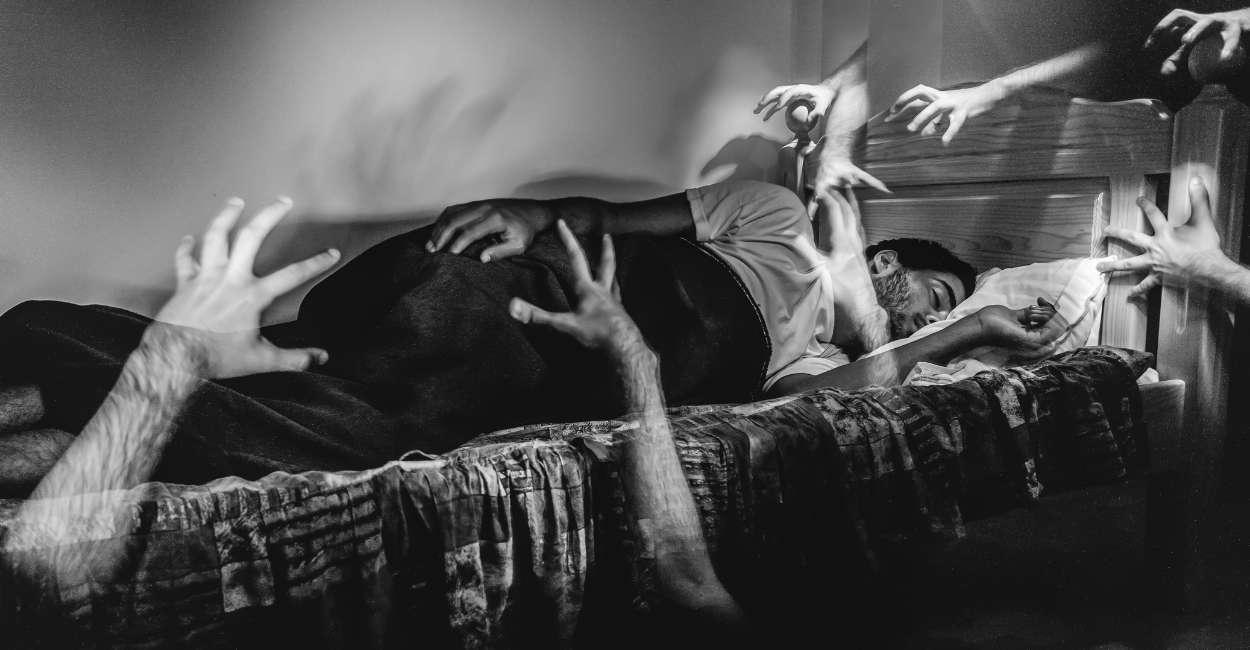COVID-19 created quite a stir in all our lives. So many dear ones have lost their lives, and many of them lost their livelihoods. But COVID-19 did not just create havoc in waking life because it did in the dream world. Recently, research was published in Nature and Science of Sleep, wherein it inferred that COVID-19 gave nightmares to people.
Disturbing dreams in the upward graph
As a part of the International COVID-19 Sleep Study (ICOSS), 14 countries participated in this research to compare the frequency between nightmares and dreams in people.
There were 544 subjects who had COVID-19, and the other 544 participants comprised people who were not infected. It is the first study examining oneiric activity in subjects who have had COVID-19 and who did not.
The participants were asked to complete a web survey between May and July 2020. Among the 1088 subjects, the majority of the participants were female (about 60% in both groups), and the age range was 34–44 years (27–28%).
During the research, the team found that both groups reported having more significant dream activity and recall during the pandemic.
However, the participants who were infected by COVID-19 had more nightmare frequency as compared to the other controlled group. Not just this, but the people who were severely affected by the virus reported having maximum nightmares.
Besides, subjects with COVID-19 experienced symptoms of anxiety, depression, and PTSD and were feeling very upset about the past. But, on the other hand, in the controlled group the score of quality of life, quality of health, and well-being were higher.
“Overall, considering results on the whole sample, it should be expected that the more people were affected by the COVID-19 pandemic, the more dream activity would also be affected,” cite the research authors.
They also mentioned in the research, “it should be considered that our data were collected during the “first wave” of the COVID-19 pandemic when knowledge about the virus was very poor. The scarce or inadequate information on the disease and its treatment, as well as the social stigmatization after diagnosis, was related to fear and feeling of uncertainty, and these factors could induce PTSD-like symptoms.”
Nevertheless, the team believes that their research is a crucial first step in understanding the effects of COVID-19 on dreams and nightmares.
The study is named “Nightmares in People with COVID-19: Did Coronavirus Infect Our Dreams? and was authored by Serena Scarpelli, Michael R. Nadorff, Bjørn Bjorvatn, Frances Chung, Yves Dauvilliers, Colin A. Espie, Yuichi Inoue, Kentaro Matsui, Ilona Merikanto, Charles M. Morin, Thomas Penzel, Mariusz Sieminski, Han Fang, Tainá Macêdo, Sérgio A. Mota-Rolim, Damien Leger, Giuseppe Plazzi, Ngan Yin Chan, Markku Partinen, Courtney J. Bolstad, Brigitte Holzinger, and Luigi De Gennaro.
Article Sources
1. https://www.ncbi.nlm.nih.gov/pmc/articles/PMC8800372/#:~:text=Discussion,activity%20and%20quality%20of%20life.
2. https://montreal.ctvnews.ca/people-diagnosed-with-covid-19-more-likely-to-have-nightmares-study-1.5786565

